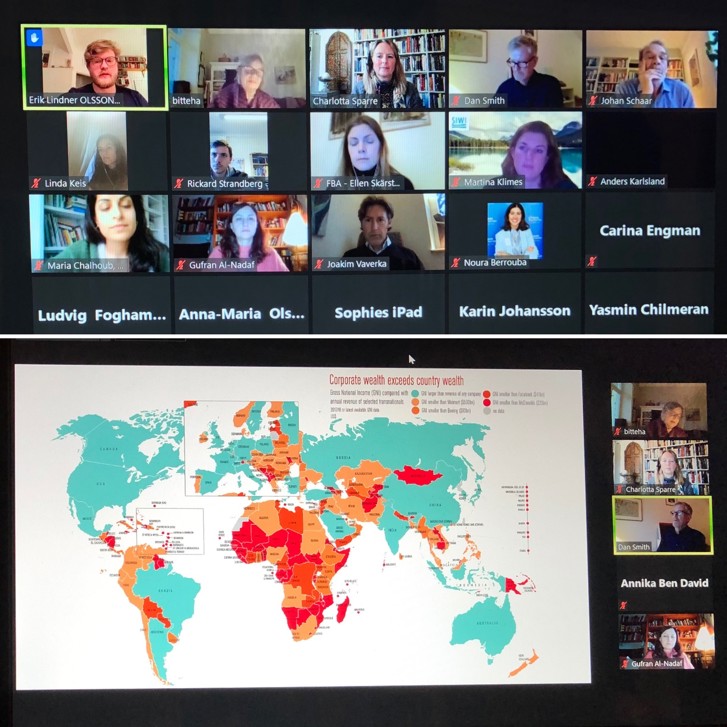In November the Swedish Dialogue Institute for the Middle East and North Africa hosted a webinar that provided a global and regional outlook on the state of the world and the MENA region. The webinar featured Dan Smith, Director of SIPRI and author of The State of the World Atlas (recently published in a 10th edition), who gave a presentation on the book’s key findings, with both a global overview and information on the specific situation in the MENA region. This was followed by comments by Bitte Hammargren, an independent and award-winning analyst, specializing on the MENA region.

With the economic, global health and geo-political reverberations of Covid-19 referenced throughout, The State of the World Atlas looks at wealth and poverty; rights and respect; war and peace; health of the planet and health of the people. While pointing to significant global challenges, Smith stressed that despite all the travail, turmoil and terrors, the story of human progress is real. People live longer, healthier lives today than ever before.
MENA region
As for the MENA region Smith highlighted several challenges, including the region seriously lagging as regards democratic developments. Furthermore, the last decade had been a period of war and conflict, partly because of inability to reach to the democratic challenge. Several countries in the region have high military spending and among them Saudi Arabia is no. 5 in global comparison. There was a doubling in casualties of war between 2010-2019, compared to 2000-2010. In terms of terror, half of the world’s terror attacks happen in three countries; Iraq, Syria and Pakistan. Smith said that often the Middle East is thought of as a place where terror comes from, while it is a place where terror happens. The conflicts in the region has resulted in large numbers of refugees, with particularly high numbers from Syria and Palestine. The region has also been seriously affected by climate change and its environmental consequences. In particular, the MENA region is among the most water stressed areas in the world.
Hammargren agreed that progress is real from a long-term and global perspective, but stressed that global climate crisis, food insecurity and the multiple crises of the MENA region constitute significant challenges. She pointed among other things to large displacement and refugees, states using non-state actors as proxies, the causalities of terror, arms sales, and the region facing danger to the climate and to peace and security. This being strengthened by autocrats whose main motivation is to stay in power and with western countries being complicit with their military interventions, support of autocrats and arms sales to the region. Hammargren touched upon the popular uprisings, sending clear signals of discontent from significant parts of the population in many countries. However, while protestors may be unified on what they’re against, it has been harder for them to agree on how to change the political system, while deep states have been doing everything and anything to keep their power monopoly.
What role can the Dialogue institute play?
Reflecting on the role of the Swedish Dialogue Institute for the Middle East and North Africa, the speakers stressed the importance of working on governance issues, while being aware of the given political limitations in the region. Work should therefore be focused on what is doable, while integrating the essence of more sensitive political issues, such as democracy. They also underlined the importance of local ownership and of being sensitive to the needs, challenges and opportunities within the MENA region.